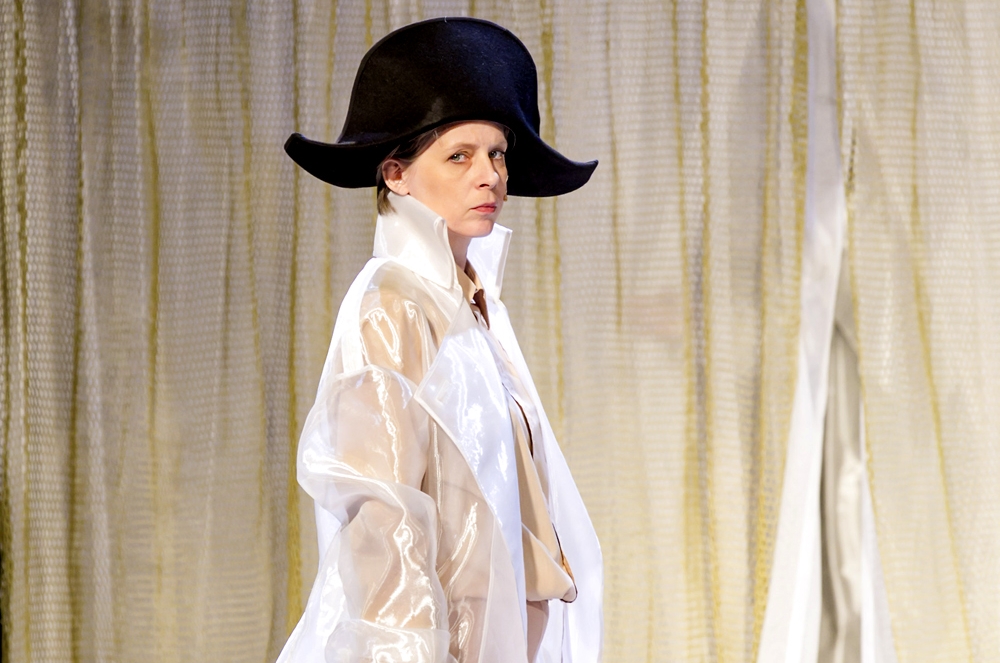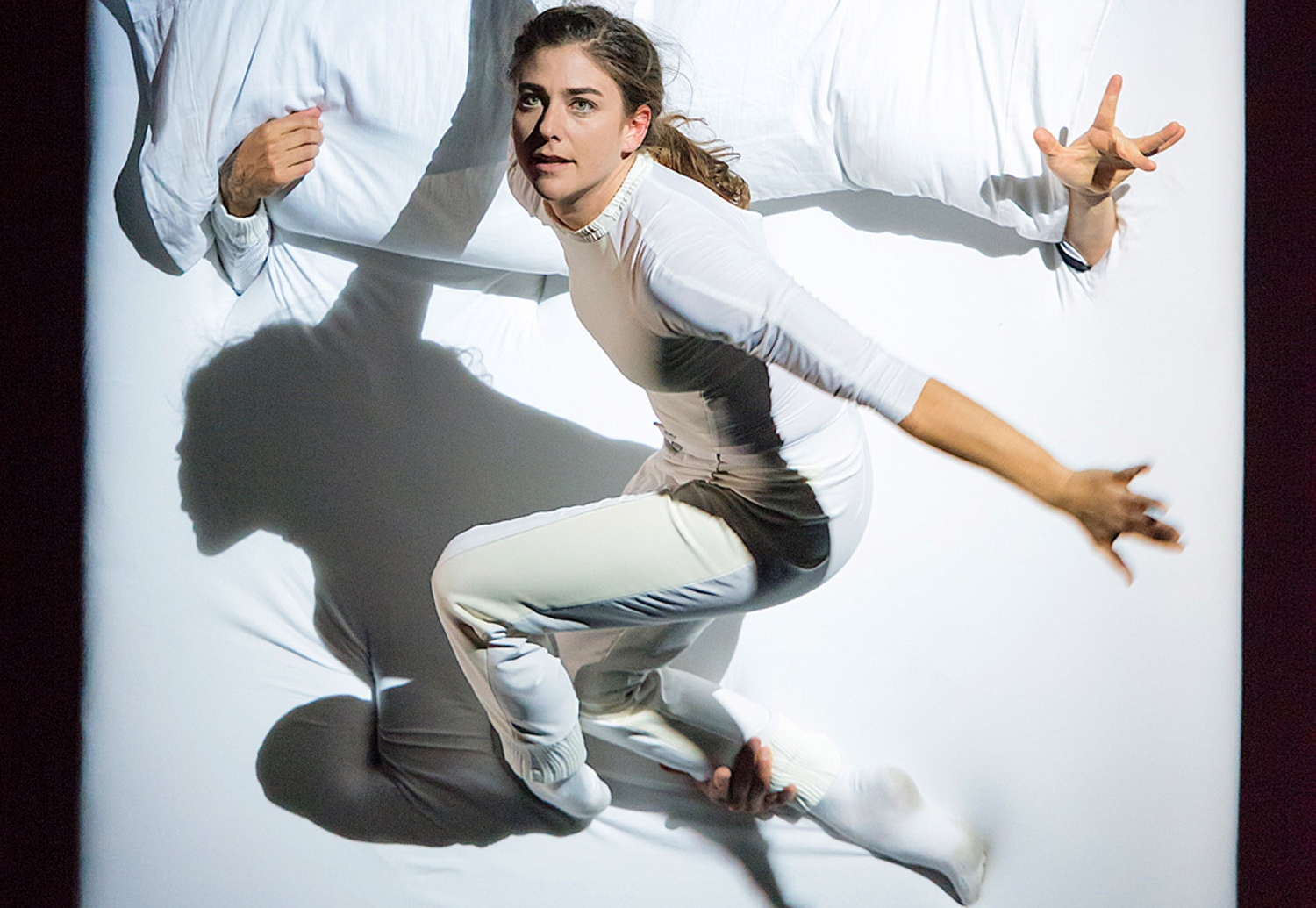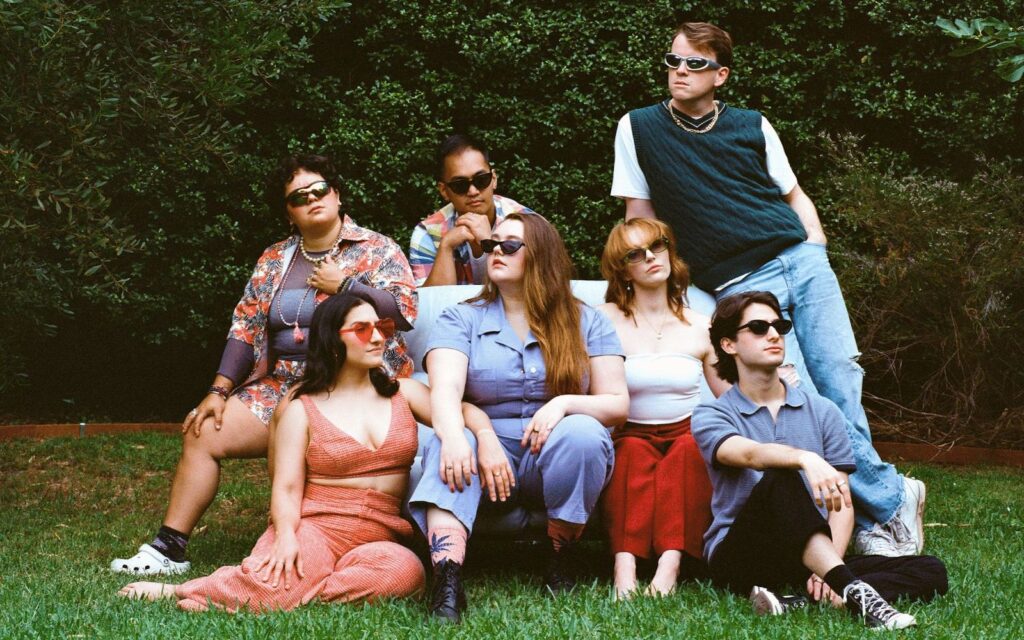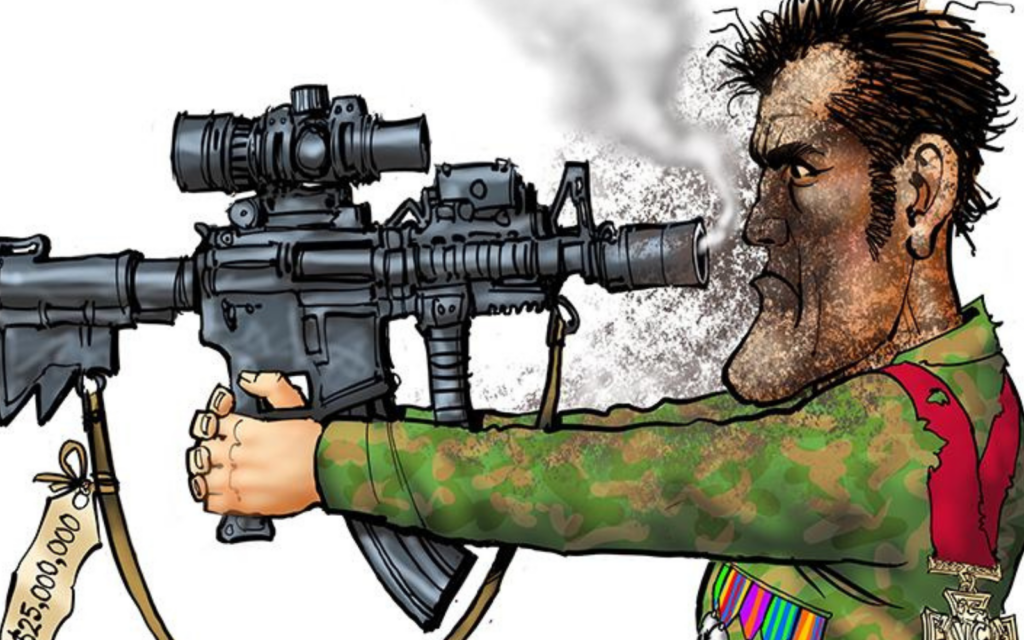“I think anyone who’s expecting to come and see War And Peace the play is going to be disappointed, because we don’t really tell the story at all,” Patten explains. “It’s more riffing off the themes and the content and sort of playing around with some of the ideas a bit. Really ripping the book apart, taking a few aspects, and seeing what we find is relevant to our own lives, and that might be relevant to today. It’s War And Peace, all 15,000 pages ripped up, thrown in the air, and we catch two or three of them on the way down, and look at them in detail.”
In the performance, Gob Squad shall be inviting members of the audience along to take part in a collective journey, to both entertain and interact for an evening of extravagance. As in the novel, the theatre shall be transformed into the type of 19th century salon where high society networked and indulged. Within those bounds, three members of the audience will be invited as noble members of the social elite to participate in an in-character improvised conversation about the state of world war – and share some food and wine, of course.
“The thing is that we invite people; we don’t force them,” Patten says. “So if anyone’s shy or they don’t want to take part, then they don’t. We’re just looking for people who are willing. The other thing is that none of us in Gob Squad is philosophically-versed or anything like that. We’re just people trying to make sense of all this stuff in this book and our place in history. The conversations are on a very everyday level, but nevertheless trying to link to the themes of the book. They’re not overly intellectual; we’re more interested in getting personal stories out of people and how they possibly can relate to war, or peace, or concepts of history.”
Tolstoy’s work, regarded as one of history’s greatest literary achievements, exhibits a timeless aura. Much of the novel’s philosophical content remains so completely relevant when placed alongside today’s central concerns. For Patten, it’s interesting to see how key historical examples of human behaviour hold up when filtered through our own perceptions.
“One of [Tolstoy’s] central themes is to question: ‘What is each individual’s place and responsibility in history?'” Patten explains. “Is it the soldier who fires the trigger, or is it Napoleon who orders him to? Thinking about that, I think, is totally relevant to today.
Gob Squad has been together as a collective for over 20 years, and relish creating exciting and innovative content. Collaborating as a team, there is no sole director; each member is responsible for forging their own artistic portions, and they work symbiotically to create an iconic and unique mix of eclectic visions.
“None of us have had that theatre, director, actor-type training,” Patten says. “I think we make our projects much more like how a band might make music. We’re consciously trying to swap roles. Sometimes you’re the outside eye, sometimes you go off and write text, and sometimes you’re on stage. It’s very important to us that everybody who stands on stage feel some sort of authorship or ownership of the work – that it’s not like when I stand on stage, I’m saying words that someone’s written for me – that I’ve developed them or co-developed them myself. I think that allows us to go off the script every now and again, and improvise slightly when we feel like it, because we’ve all had a hand in designing and developing every aspect of it.”
BY JACOB COLLIVER







